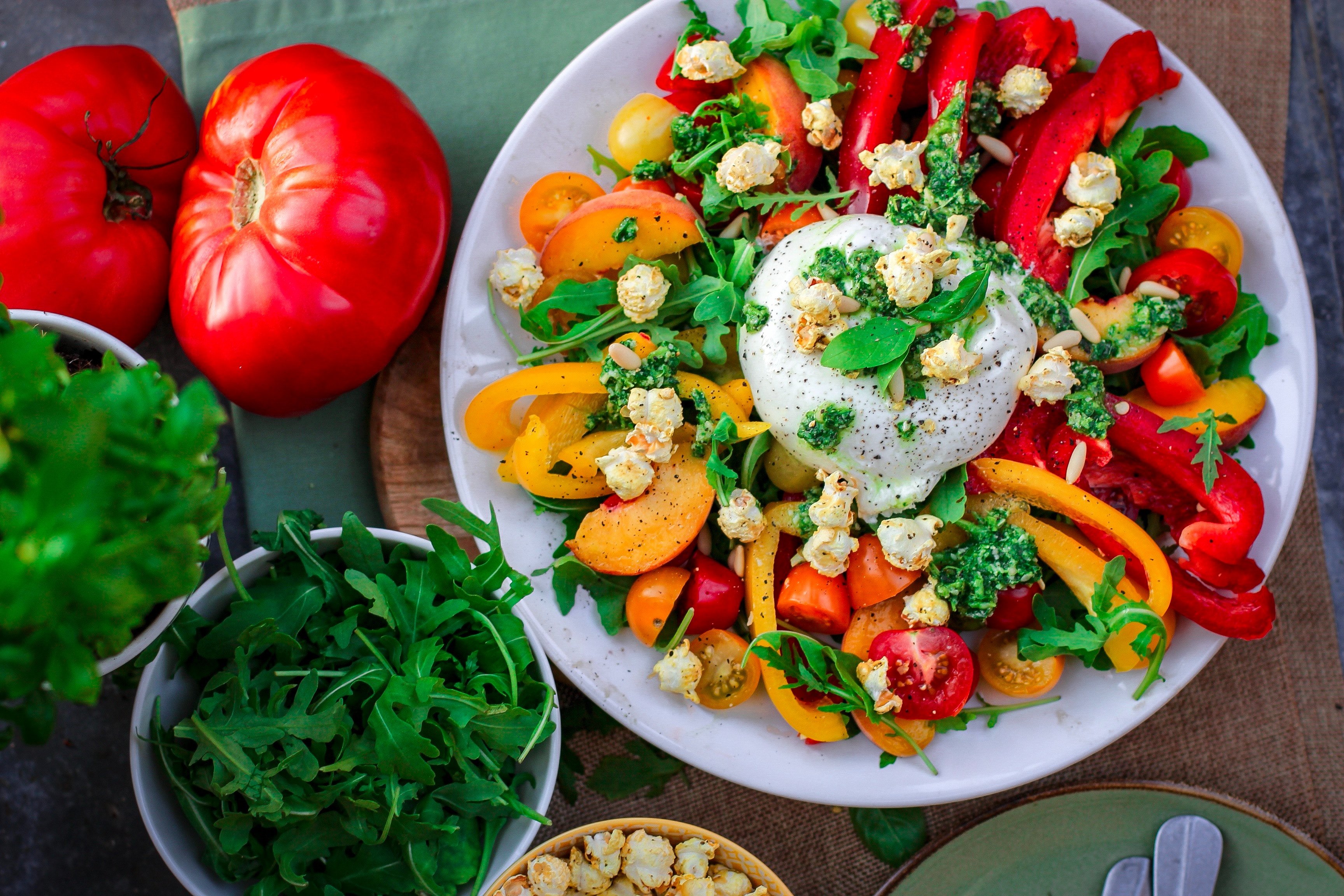
Many people see salads as bland, boring, and unsatisfying. I get it: at first glance, salads are mostly greens (some of which are easily recognizable, some are not) with hardly anything else on them other than few tiny pieces of fruit and meat.
To people whose daily diet consists of hearty helpings of rice, seasoned meats, savory soups, and casseroles, a salad would seem to pale in comparison. They see salads as rabbit food and not tasty nor filling enough to satisfy their hunger.
I disagree with this perception, however.
Having emerged from a six-week, Lenten season diet of seafood and vegetables, I’ve found salads to be very tasty and filling; it’s just a matter of having the right ingredients in your bowl.
Here are some great ingredients you can add to your salad to make it more flavorful and satisfying:
The Base: Dark Greens
Iceberg lettuce is a mainstay in salad bars for a reason. It’s abundant, affordable, and goes well with practically anything taste-wise. Meats, fish, nuts, sauces — you can toss them in with iceberg lettuce.
There’s just one teeny problem: lettuces are about 96 percent water, and iceberg lettuce has far fewer calories and nutrients compared to its darker varieties and other leafy greens. I learned this is why I have to eat a lot of iceberg lettuce to feel full; and even then, I tend to go hungry again about two hours after my meal.
So if satiety is what you’re after, use spinach, kale, romaine, and green or red leaf lettuce instead of iceberg lettuce as your salad base.
The Body: Fiber-Rich Food and Meats
Another way to boost satiety is to increase the dietary fiber in your salad. Staple salad greens already contain natural fibers, but you can still increase your salad’s fiber content further by adding the following:
- Grains – quinoa, cereals, barley, and couscous
- Fruits – apples, pears, avocados, oranges, raspberries, strawberries, grapes, and mangoes
- Vegetables – carrots, broccoli, artichokes, bell peppers, beets, Brussels sprouts, and tomatoes
- Legumes – chickpeas, garbanzo, lentils, red beans, and mung beans
The best thing about these ingredients is that they also add texture to your salad. The softness of the fruits along with the crunch from the veggies and legumes make each forkful truly satisfying. Of course, the additional ingredients also mean extra nutrition for your body:
- Broccoli, sprouts, and strawberries are some of the most nutrient-dense food you can find in supermarkets today.
- Grains are rich in B-vitamins, calcium, and minerals like iron, magnesium, and selenium.
- Fruits are packed with vitamin C, antioxidants, and, in the case of avocados, healthy fats.
- Legumes are excellent sources of protein and complex carbohydrates.
Adding these in your salad will not only satiate you, but also give your body trace minerals you don’t usually get from meaty dishes.
Speaking of which, adding chunks of tender pork cutlets, chicken, fish, or shrimp in can also add meat (pun intended) and flavor to your salad.
The Garnish: Nuts, Seeds, and Poultry
The base and body of a salad should be enough to make you feel full. Still, it doesn’t hurt to add something extra.
If your salad is mostly greens, you can garnish it with nuts and seeds so you’ll have something solid to chew. Walnuts, pistachios, and almonds are chunky enough to give you a mouthful of crunch. Each of them also has a distinctive taste that can “make” a salad.
Sesame, flax, and chia seeds are other, nutrient-dense alternatives. They may not add to the volume, but they complement the flavors and make your salad more filling. This is because seeds, like flax and chia, contain protein and omega-3 fats.
Still not convinced a salad will make you feel full? Add slices of one hard-boiled egg for good measure. It can make your salad look appetizing and, thanks to its high protein content, it also increases satiety.
Top off your salad with a dressing that tickles your taste buds (I recommend roasted sesame dressing, vinaigrette, or vinaigrette with crumbled feta and dried oregano), and you’ll have a salad that’s both tasty and filling!
Got a filling salad recipe? You’re welcome to share it in the comments below.
